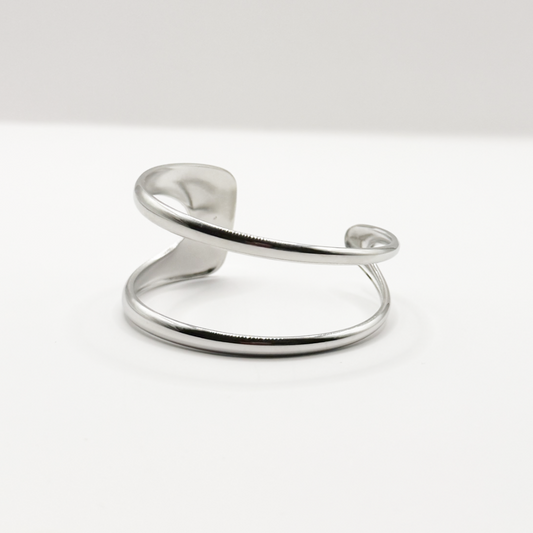Grief is an intensely personal and deeply challenging experience. When you’re in the midst of it, there are no clear rules or guidelines on how to cope. There’s no roadmap for how to handle the overwhelming emotions that come with loss. The only certainty is that you must navigate through the storm, trusting that someday, the pain might ease, even if just a little.
Your life has been profoundly altered by loss, and it will never be the same as it was before. This new reality can feel disorienting and overwhelming, and as you face it, the most important thing you can do is to be kind and gentle with yourself. Here are five ways to practice self-compassion as you continue on your grief journey.
1. Let Go of Expectations
In the aftermath of loss, it’s common to feel pressure—whether from yourself or from society—about how you should be handling your grief. You might feel guilty for not being productive, or for not showing your sadness in a way that others might expect. It’s important to release these expectations. There is no “right” way to grieve.
Grief is not linear; it doesn’t follow a set timeline or pattern. Some days, you might feel more capable of facing the world, while other days, it might be all you can do to get out of bed. That’s okay. Give yourself permission to feel whatever you’re feeling without judgement. Whether you’re crying one minute and feeling numb the next, or whether you’re struggling to concentrate on work or household tasks, it’s all a part of the process. Be gentle with yourself and remember that there’s no need to meet any particular standard of how grief should look or feel.
2. Connect with Nature and Seek Sunlight
While it may seem simple, spending time outdoors can be a powerful tool in your healing process. Numerous studies have shown that exposure to sunlight and being in nature can have significant benefits for mental health, including reducing symptoms of depression and anxiety, which often accompany grief.
Nature offers a quiet and peaceful space where you can be alone with your thoughts or simply escape them for a while. The act of walking through a park, sitting by a river, or just feeling the warmth of the sun on your skin can provide a sense of calm and grounding. Even on days when you don’t feel like leaving the house, try to step outside for a few minutes to breathe in fresh air. These small moments can help lift your spirits and offer a brief respite from the intensity of your emotions.
3. Lean on Family and Friends
Grief can feel incredibly isolating, but it’s important to remember that you don’t have to go through it alone. Leaning on the people who care about you can make a significant difference in how you cope with your loss. Your family and friends are there to support you, to listen when you need to talk, and to offer comfort in whatever form you need it.
It might be difficult to reach out, especially if you’re feeling overwhelmed or if you’re worried about burdening others with your pain. But those who love you will want to be there for you, even if it’s just to sit quietly by your side. The right people won’t rush you or expect you to be “over it” by a certain time. They understand that grief is a long and unpredictable journey. Sharing your memories, expressing your pain, and talking about your heartbreak can be incredibly cathartic. It’s through these connections that you can find some relief, even if only for a moment.
4. Allow Yourself to Sit with Your Grief
It’s natural to want to escape the pain of grief, to avoid the uncomfortable emotions that come with loss. However, trying to suppress or ignore your feelings can often make things worse in the long run. It’s important to give yourself permission to sit with your grief, even when it’s painful.
You don’t need to analyse or over think what you’re feeling, but try to avoid numbing your emotions with unhealthy coping mechanisms, such as alcohol. Numbing the pain might provide temporary relief, but it won’t make the grief go away—it will only delay the process and often return with even greater intensity. Instead, try to acknowledge your emotions as they come. Cry if you need to, scream if it helps, or simply sit in silence. A safe space is so important to have for time when you are feeling like this.
Sometimes, you can't force yourself to sit down and "process" everything—it has to happen when it feels right. It might be about pausing when you feel that twinge in your heart and letting your mind follow the memory. Over time, if you give yourself the space and time, and only when it feels safe, that pain can slowly shift into something more peaceful or even positive.
5. Practice Self-Compassion
Above all, practice self-compassion. Treat yourself with the same kindness and understanding that you would offer a friend going through a similar situation. This might mean allowing yourself to take breaks when you need them, forgiving yourself for not being able to function at full capacity, or finding small ways to nurture yourself, such as taking a warm bath, reading a comforting book, or engaging in a creative activity.
Self-compassion is about recognising that you are human and that it’s okay to struggle. It’s about giving yourself permission to grieve in your way and at your own pace. There’s no right or wrong way to heal, and there’s no timeline you need to follow. The journey through grief is yours alone, and the most important thing you can do is treat yourself with the care and gentleness you deserve.
Conclusion
Grief is a rollercoaster, one that alters your life in profound ways. As you navigate this difficult journey, remember to be gentle with yourself. Let go of expectations, connect with nature, lean on your loved ones, allow yourself to sit with your emotions, and practice self-compassion. While these steps won’t take away the pain, they can help you move forward with a little more peace and a lot more kindness toward yourself.





